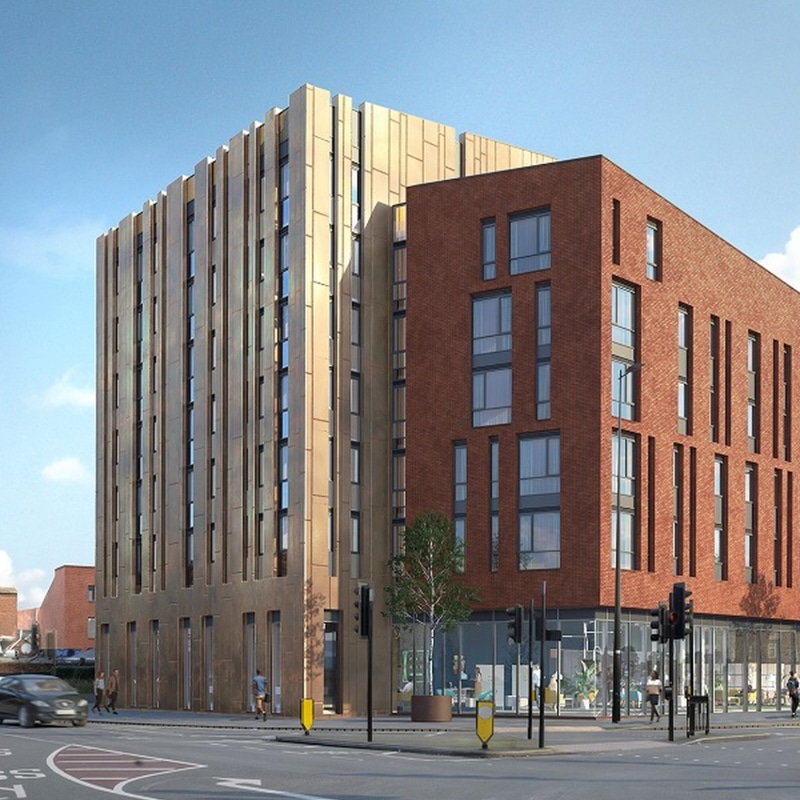Purpose-built student accommodation (PBSA) plays a crucial role in the UK’s housing market. The higher education sector is witnessing a significant increase in the number of first-year undergraduate students which are mainly UK students, applications from home students was up 2.1% in 2020 and 5.1% in 2021 with projections indicating that applicants could reach 1 million by 2030. There are proportionally more overseas postgraduate students, however there was a fall in EU students in 2021 (40% down).
Despite its importance, there is a chronic undersupply of PBSA, particularly in London. To address this, the National Planning Policy Framework (NPPF) mandates planning authorities to plan for the needs of students. However, resistance from local planning authorities towards new developments still exists. Therefore, to gain approval for a PBSA application, it is necessary to present a unique value-added proposition that benefits the wider community. This blog post looks at the challenges and opportunities in the future of student housing and pulls on experience of a number of schemes including in Colchester and Loughborough.

Hythe Mills, Colchester
Local authorities are tightening planning requirements, making it more challenging to develop PBSA. Planning requirements have generally become more stringent, with policies that include affordable housing contributions or restrictions on the locations that can be considered for new development. This means that developers and investors need to be more strategic and creative in the selection of locations and in offering affordable and sustainable solutions to meet planning requirements. In London, local resistance to student housing has been heightened, with areas sometimes ring-fenced for boutique hotel or private rented sector schemes instead of PBSA options.
Competition for funding is also increasing. There is high demand for affordable housing, which reduces the availability of funding. In addition, universities are increasingly turning to Public-Private Partnership (PPP) schemes that allow the private sector to invest in higher education. This competition requires developers and investors to be selective in choosing projects that offer value to all stakeholders.
Another challenge for developers and investors is the changing demands and expectations of students. Today’s students are more diverse and require a broader range of living arrangements with schemes we have advised on providing a range of town houses, duplex, ensuite private rooms (standard to premier levels), flats with shared kitchens, mini apartments, and shared apartments all offered at different price points. These PBSA also include mixed-use schemes and co-living options that offer more communal spaces and modern facilities from study / work areas, air conditioning, games rooms, dining areas, lounges, sports and gym facilities, post collection, bike stores laundry rooms, bike hire, and in some cases the inclusion of utility bills and contents insurance.
Students are also more tech-savvy, and accommodation providers need to offer tech-enabled solutions that enhance and differentiate the student living experience. In addition to practical considerations, developers must also think about the non-tangible benefits to the wider community that can make PBSA development attractive to planning authorities and to the local existing population in which they will sit. For example, local job creation and apprenticeships, workspaces or community facilities which can be used by student residents and the local communityPBSA providers can also offer development contributions to cultural provisions and outdoor parks, providing a flow-on effect for the community. In some instances schemes have linked with the relevant university and included public art on the building, designed by a student in the art faculty (The Luxurio, Loughborough) chosen via a people in the community and following an interview process, this art replaced a green wall that had been requested .

Luxurio, Loughborough
Despite many challenges, there are also significant opportunities in the future of student housing. The increase in student numbers and changing demands provide an opportunity for developers and investors to create innovative, sustainable, and affordable accommodation options that meet the needs of today’s students. In addition, the growth of PPP schemes, combined with a competitive market for funding, can provide a unique opportunity to create partnerships that benefit all stakeholders. PBSA can also importantly free up much needed local homes for local families which have over the years been converted to student ‘digs’, and PBSA can bring people back into town centres and with it a degree of activity and spend locally which can then jump start other inward investment.
Against the backdrop of more stringent planning requirements, competition for funding, and the evolving expectations of students , we need strategic and creative thinking that helps developers and investors overcome these challenges and create innovative, sustainable, and affordable accommodation options that meet the needs of today’s students. Developers must focus on creating value-added propositions by providing new development opportunities that benefit the wider community, as well as managing compliance with legislation. With appropriate planning and community value propositions, PBSA can forge ahead and help address the UK higher education sector’s demand for appropriate living standards.
